
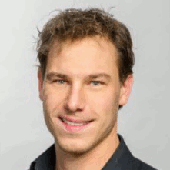 Prof. Dr. Job Boekhoven
Prof. Dr. Job Boekhoven
Department of Chemistry (TUM)
Email: job.boekhoven@tum.de
Phone: +49 89 289 10592
We look for life-like behavior in fully synthetic molecular assemblies. Inspired by biology, we couple the self-assembly of our building blocks to networks of irreversible chemical reactions. In the resulting far-from-equilibrium assemblies we search for robustness, adaptivity and self-replication, in an attempt to find life-like behavior using prebiotic chemistry.
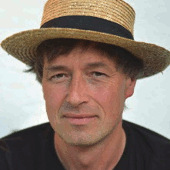 Prof. Dr. Dieter Braun
Prof. Dr. Dieter Braun
Systems Biophysics (LMU)
Email: dieter.braun@lmu.de
Phone: +49 89 2180 1484
Can we recreate molecular living systems in the lab? Which nonequilibrium settings can generate and trigger dead molecules to perform autonomous, Darwinian evolution? Temperature differences across open pores of rock are thermally cycling genetic molecules for replication while thermophoresis enhances polymerization and selects long over short genes. Despite studying the physics of thermophoresis, the movement of molecules in a thermal gradient, its application for biomolecule affinity detection has found widespread application through the Startup NanoTemper.
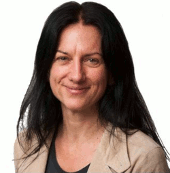 Prof. Dr. Paola Caselli
Prof. Dr. Paola Caselli
Center for Astrochemical Studies
Director - Max Planck Institute for Extraterrestrial Physics
Email: caselli@mpe.mpg.de
Phone: +49 89 30000 3400
Life has emerged on Earth and maybe in other planets/moons in our Solar System and beyond. We find organic molecules in comets and pre-biotic materials such as carbonaceous chondrites or interplanetary dust particles. When stars reach the end of their lives, heavy elements will be incorporated into future generations of stars and planets. Understanding this cycle is fundamental to understand how stars and planets form, how organic material evolves and how life could originate.
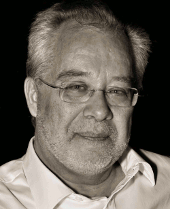 Prof. Dr. Don Dingwell
Prof. Dr. Don Dingwell
Department of Earth and Environmental Sciences
Section of Mineralogy, Petrology and Geochemistry (LMU)
Email: dingwell@lmu.de
Phone: +49 89 2180 4136
Experimental Volcanology is seeking an adequate understanding of the nature and extent of physico-chemical processes involved in explosive volcanism. In recent years much effort has focused on high silica (rhyolitic) melts under conditions relevant to explosive volcanism. Operating four experimental volcanoes, we study the origin, transport and extraction of magmas under different conditions of pressure, temperature and oxygen fugacity. Our experimental methods include the study of mineral synthesis and physicochemical characterisation of geomaterials under high pressure and high temperature conditions. Immediate applications include volcano monitoring, eruption forecasting, reconstructing the history of volcanic events through geologic time and understanding the role of explosive volcanism and volcanic ash in the earth system and its biosphere.
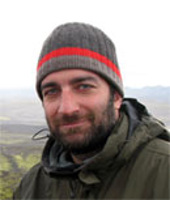 Dr. Corrado Cimarelli
Dr. Corrado Cimarelli
Department of Earth and Environmental Sciences
Section of Mineralogy, Petrology and Geochemistry (LMU)
Email: cimarelli@min.uni-muenchen.de
Phone: +49 89 2180 4258
Volcanoes are the most spectacular expression of geologic dynamism on Earth as well as on other planets. Geological evidences show that volcanoes on Earth have been active before the appearance of life above and below the oceans, thus contributing to the conditions for which life has originated and subsequently proliferated. We experimentally investigate the conditions of generation and dispersion of solid aerosols, their electrification and their reactivity with volcanic and other gases as well as the high temperature and pressure conditions of hydrothermal vents that might have contributed to the origin of life on our planet.
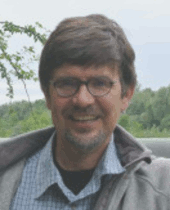 apl. Prof. Dr. Wolfgang Eisenreich
apl. Prof. Dr. Wolfgang Eisenreich
Biochemistry (TUM)
Email: wolfgang.eisenreich@mytum.de
Phone: +49 89 289 13336
We focus on the detailed quantitative analysis of metabolism networks and use incorporation experiments with stable isotope labeled precursors followed by GC-MS or NMR isotope analysis of key metabolites (carbohydrates, amino acids). Instead of analyzing metabolism using a linear and unidirectional view, the complexities of biological networks and their crosstalk with host cells, we assess the isotope distribution of multiple metabolites. The identification of metabolic key reactions can serve as novel targets for antibiotics.
 Prof. Dr. Erwin Frey
Prof. Dr. Erwin Frey
Statistical and Biological Physics (LMU)
Email: frey@lmu.de
Phone: +49 89 2180 4538
We focus on collective effects in the dynamics of complex systems. We are interested in how the interplay between stochastic fluctuations, geometries and interactions shape system-level properties and their functional characteristics. The aim is to develop a mechanistic understanding of system features. We use and develop analytical and numerical methods from non-equilibrium statistical physics and nonlinear dynamics.
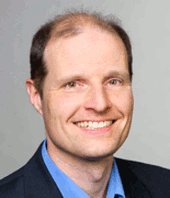 Prof. Dr. Ulrich Gerland
Prof. Dr. Ulrich Gerland
Head of Theory of Complex Biosystems (TUM)
Email: gerland@tum.de
Phone: +49 89 289 12380
We want to understand how the laws of physics constrain the implementation of biological function. In physics, interactions between particles follow laws. In biology, interactions between biomolecules serve a function. For instance, spatial arrangement and coordination of enzymes determine the efficiency of a multi-step reaction. Functional trade-offs emerge, which must be characterized to understand the optimization of such systems.
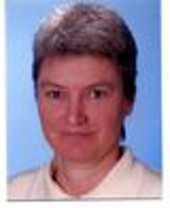 Dr. Claudia Huber
Dr. Claudia Huber
Lehrstuhl für Biochemie (TUM)
Email: claudia.huber@mytum.de
Phone: +49 89 289 13044
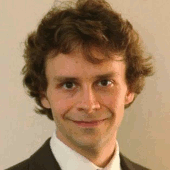 Prof. Dr. Ville Kaila
Prof. Dr. Ville Kaila
Theoretical and Computational Biochemistry Group (TUM)
Email: ville.kaila@ch.tum.de
Phone: +49 89 289 13612
Our research is focused on understanding molecular principles of enzyme catalysis, with special emphasis on biological energy conversion. We employ state-of-the-art methodology of theoretical and computational Biochemistry, including first-principle quantum chemical and classical molecular simulations to obtain insight in the structure, energetics, and dynamics of biomolecules.
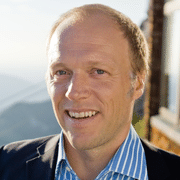 Prof. Dr. Tim Liedl
Prof. Dr. Tim Liedl
Soft Condensed Matter (LMU)
Email: tim.liedl@physik.lmu.de
Phone: +49 89 2180 3725
We focus on molecular self-assembly processes in general and particularly in the engineering of functional DNA devices using the DNA origami. The integration of self-assembled DNA into hybrid materials and its characterization will help us to understand the mechanical and chemical interactions across multiple levels of organization between the different molecular components in living cells and tissues.
 Dr. Christof Mast
Dr. Christof Mast
Systems Biophysics (LMU)
Email: christof.mast@physik.uni-muenchen.de
Phone: +49 89 2180 1484
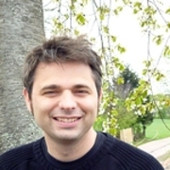 Dr. Hannes Mutschler
Dr. Hannes Mutschler
Biomimetic Systems
Max Planck Institute of Biochemistry
Email: mutschler@biochem.mpg.de
Phone: +49 89 8578 2327
We are interested in the bottom-up reconstitution of minimal genetic systems capable of recursive replication and Darwinian Evolution. Moreover, we are exploring different prebiotic environments for their ability to assist the emergence primitive RNA-enzymes during the Origin of Life. We employ a variety of methods from protein and nucleic acid biochemistry, genome assembly, directed evolution, and deep sequencing.
 Prof. Dr. William Orsi
Prof. Dr. William Orsi
Department of Earth and Environmental Sciences
Palaeontology & Geobiology
Email: w.orsi@lrz.uni-muenchen.de
Phone: +49 89 2180 6598
We are focused on the biological and biochemical mechanisms underlying microbial loops: the biogeochemical cycling of carbon and its processing through microbial food webs. At deep sea low temperature hydrothermal vents chemolithoautotrophic microbes are able to fix CO2 in the absence of sunlight, fueled by geological energy sources. These settings exhibit water-rock interactions and abiotic chemistry called serpentinization, whereby the abiotic synthesis of organic molecules occurs in a naturally exiting proton gradient. This is hypothesized to be analogous to the metabolism of the first cell and the chemolithoautotrophic microbes living at these settings today obtain energy through a similar carbon fixation and bioenergetic pathway. We are interested in the genomic evolution of this ancient bioenergetic pathway throughout the geological record, its role in the origins of life, and the mechanisms by which it supports life and ecosystems.
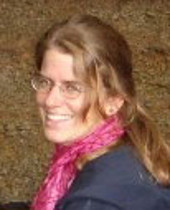 Dr. habil. Bettina Scheu
Dr. habil. Bettina Scheu
Department für Geo- und Umweltwissenschaften
Sektion Mineralogie, Petrologie und Geochemie
Email: b.scheu@lmu.de
Phone: +49 89 3187 3246
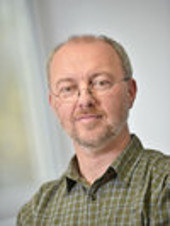 Prof. Dr. Philippe Schmitt-Kopplin
Prof. Dr. Philippe Schmitt-Kopplin
HelmholtzZentrum München
Research Unit Analytical BioGeoChemistry
Email: schmitt-kopplin@helmholtz-muenchen.de
Phone: +49 89 2180 4259
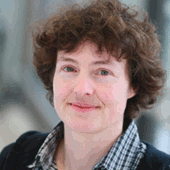 Prof. Dr. Petra Schwille
Prof. Dr. Petra Schwille
Cellular and Molecular Biophysics
Director - Max Planck Institute of Biochemistry
Email: office-schwille@biochem.mpg.de
Phone: +49 89 8578 2900
Our ambition is to quantitatively understand living systems on the scale of individually active and interactive molecules such as proteins, lipids and nucleic acids. To unravel the underlying basic principles of biological phenomena, we follow a bottom-up approach of minimal systems in the framework of synthetic biology. The very far goal of such approaches could be the in vitro reconstitution of a self-replicating biomimetic system.
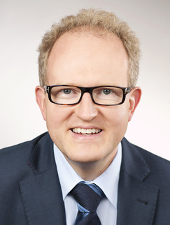 Prof. Dr. Oliver Trapp
Prof. Dr. Oliver Trapp
Department of Chemistry (LMU)
Email: oliver.trapp@cup.uni-muenchen.de
Phone:
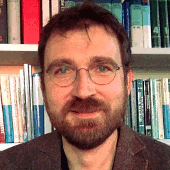 Prof. Dr. Dirk Trauner
Prof. Dr. Dirk Trauner
Chemistry and Biochemistry (LMU)
Email: dirk.trauner@lmu.de
Phone: +49 89 2180 77800
A substantial part of our research program is dedicated to chemical synthesis and natural product chemistry. We are convinced that the vast majority of natural products have not yet been found and that a wealth of interesting chemistry and biology awaits discovery. We are intrigued by the structural beauty and functional sophistication of these molecules. Through total synthesis, we gain insight into their mechanism of action and biosynthetic origin.